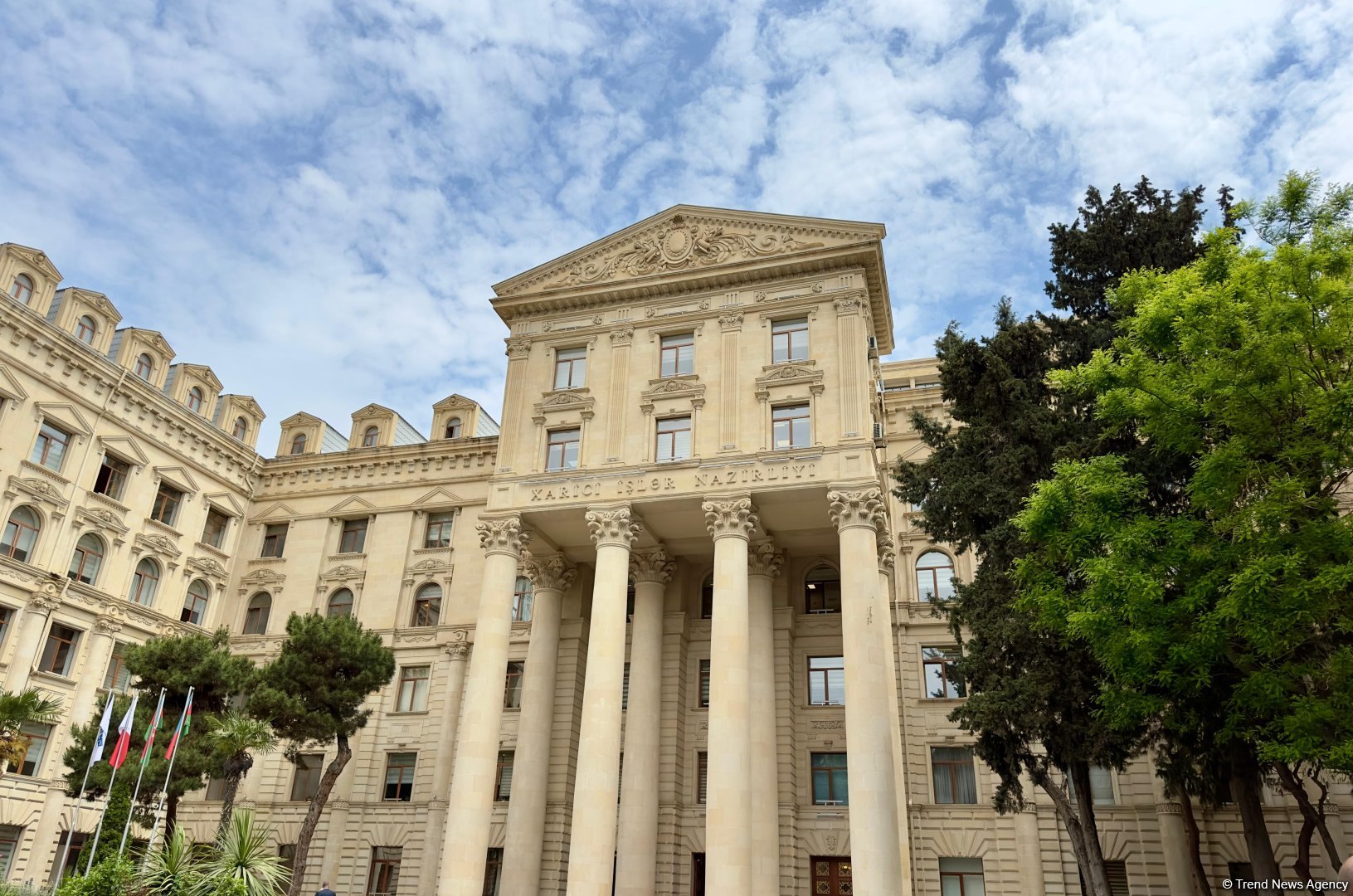BAKU, Azerbaijan, August 31. Regrettably, the Prime Minister of Armenia once again made a series of statements at the press conference on 31 August contradicting the Azerbaijan-Armenia normalization process and the efforts to ensure peace and security in the region, said the Ministry of Foreign Affairs of Azerbaijan, Trend reports.
“Allegations about the territorial claims against Armenia in the
Constitutional Act of Azerbaijan are completely false. An attempt
to draw parallels and balance the Constitution of Azerbaijan and
the Constitution of Armenia is unacceptable. None of the
international partners accept this claim of Armenia, and everyone
knows it is frivolous. Unlike the Constitution of Armenia, the
Constitutional Act on State Independence of 1991 and the
Declaration of Independence of 1918 referred to in the Constitution
of Azerbaijan do not contain any territorial claims against
Armenia. Which territories were part of Azerbaijan during the First
Republic of Azerbaijan and when they integrated into Armenia are
historical facts and these facts cannot be denied. Currently, this
does not mean that there are any territorial claims against Armenia
in Azerbaijan’s legislation.
The reference by the Armenian side to the provision in the draft
peace agreement that “neither party may invoke its domestic
legislation for not implementing its obligations under the peace
agreement” to support the statement that the territorial claim in
its Constitution is harmless is null and void. It is a well-known
fact that no international agreement can have a superiority over
the Constitution.
Therefore, no matter in what form the Armenian side intends to sign
the “peace agreement,” the major condition for signing the real and
sustainable peace agreement is ending the continuing territorial
claim of Armenia against Azerbaijan that is enshrined within its
multiple legal and political documents, most importantly in the
Constitution of Armenia that openly refers to the Declaration of
Independence of Armenia calling for “reunion of Armenia and
Nagorno-Karabakh.”
Furthermore, the allegations made by the Prime Minister when
justifying Armenia’s mass militarization efforts do not reflect the
reality in any case. First of all, let us note that Armenia is the
country that has kept the territories of Azerbaijan under the
occupations for nearly 30 years contrary to the norms and
principles of international law, the UN Charter, and the Alma-Ata
Declaration that she refers to, and it is not difficult to
understand how the militarization of Armenia is a threat to
regional peace and security taking into account the existence of
territorial claims against its neighbors.
Armenia’s allegations that the military budget of Azerbaijan is
14-15% of the country’s gross domestic product (GDP) and exceeds
multiple times Armenia’s relevant budget is completely contrary to
the information disseminated by international organizations about
the military budget, and this figure is repeatedly exaggerated. In
addition, the increase of Armenia’s military expenditures by 46%
compared to last year is another indicator that proves Armenia’s
militarization. At the same time, the claim made by the Prime
Minister that Azerbaijan allegedly bought weapons from Italy does
not reflect the reality.
Concerning the position of the Prime Minister on the Minsk Group,
it is possible to see that the attempts of the Armenian side to
restore the Minsk Group, which is a remnant of the past conflict,
demonstrate that this country has a hidden agenda against
Azerbaijan.
The logic of the Prime Minister of Armenia that these problems can
be ignored shows that this country is not interested in sustainable
peace and is only trying to keep this situation as a backup option
to start aggression against Azerbaijan once again in the
future.
In order to prove that it is serious about the peace process,
Armenia should refrain from contradictory statements and
provocative steps, and show that it respects the norms and
principles of international law with its actions and real steps,”
the statement reads.







